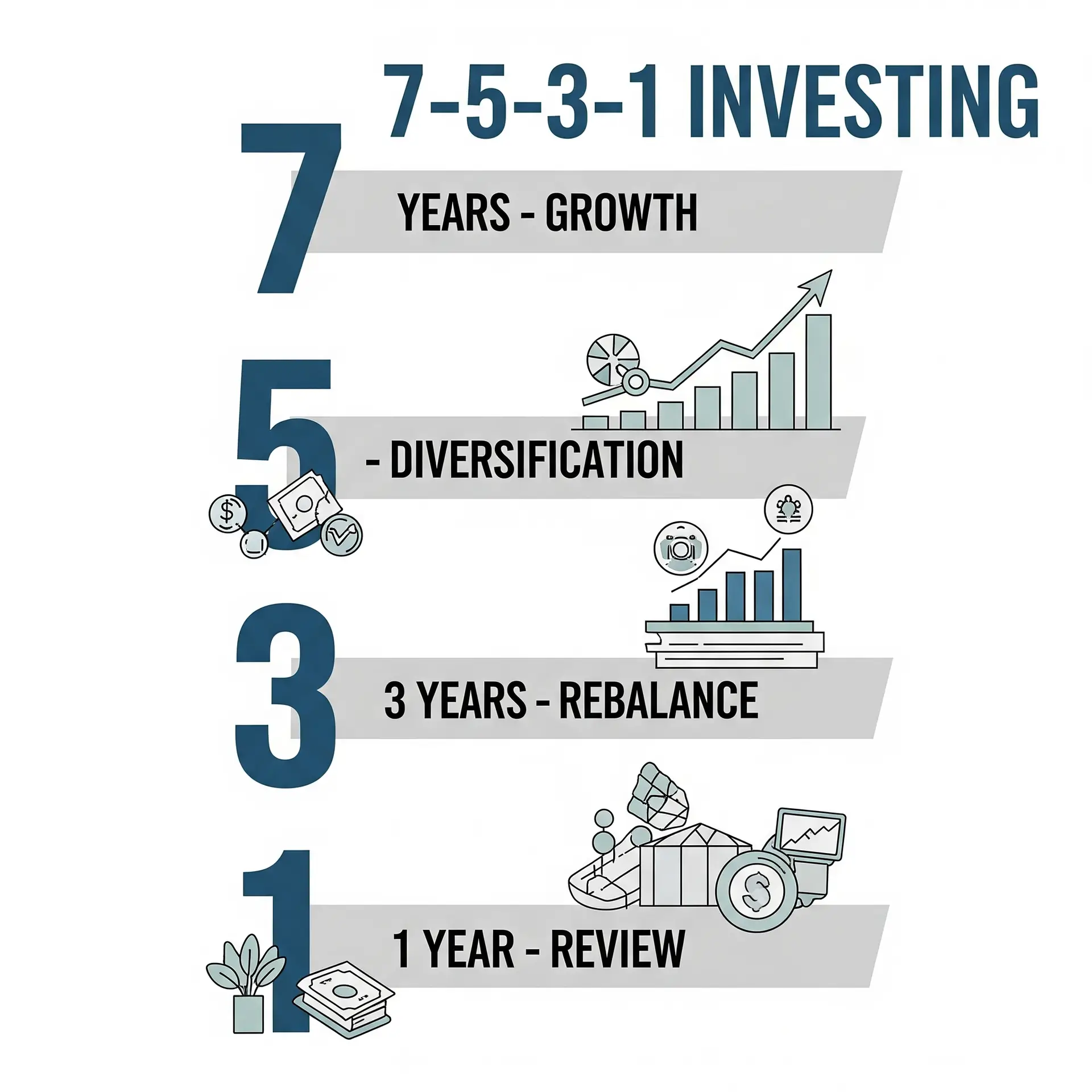A few days ago, I met an old acquaintance. Within minutes, his phone was out—portfolio app open, market charts flashing. Before I could even sit down, the questions started:
• “Should I buy property now?”
• “My direct equity portfolio has 40 stocks—should I consolidate?”
• “In mutual funds, we have 15 schemes—should I trim them?”
• “Also, I dabble in trading—what do you think?”
What I heard wasn’t just curiosity—it was investment anxiety and a need for reassurance. Whether you’re a beginner investor or have been in the markets for years, the underlying question is always the same:
“What’s the right way to invest for the long term?”
One simple yet powerful approach I recommend is the 7-5-3-1 Rule of Investing. (Disclaimer: This framework isn’t my invention, but it’s one of the most effective ways to simplify decisions, reduce risk, and stay consistent.)
⸻
7 — Commit to a 7-Year Equity Horizon
Equity markets can be volatile in the short term. To unlock real wealth creation, give your equity investments at least 7 years to grow. This patience allows compounding to work its magic.
5 — Diversify Across 5 Strategies
Spread your SIPs across five distinct equity strategies—different investment styles, market capitalizations, and even geographies. This ensures portfolio diversification so one market phase doesn’t derail your returns.
3 — Hold 3 Asset Classes & Avoid 3 Emotions
Maintain exposure to three asset classes—equity, debt, and gold—for balanced risk. And never let three emotions dictate your exits:
❌ Disappointment
❌ Frustration
❌ Panic
1 — Review & Act Once a Year
Every year:
• Review your portfolio once
• Increase your investments once
• Make a lump sum contribution once (big or small)
And ensure every investment serves at least one clear financial goal.
⸻
The 7-5-3-1 Rule isn’t a rigid formula—it’s a compass for financial planning that brings clarity, purpose, and balance to your investing journey.
📌 Would you follow it? Or do you already have an investment framework of your own?
💬 Share in the comments or DM me—I’d love to know your approach.
————
hashtag#PersonalFinance hashtag#InvestmentStrategy hashtag#MutualFunds hashtag#EquityInvesting hashtag#FinancialPlanning hashtag#WealthBuilding hashtag#SmartInvesting hashtag#MoneyMatters hashtag#LongTermInvesting hashtag#PortfolioManagement hashtag#AssetAllocation hashtag#FinancialGoals

